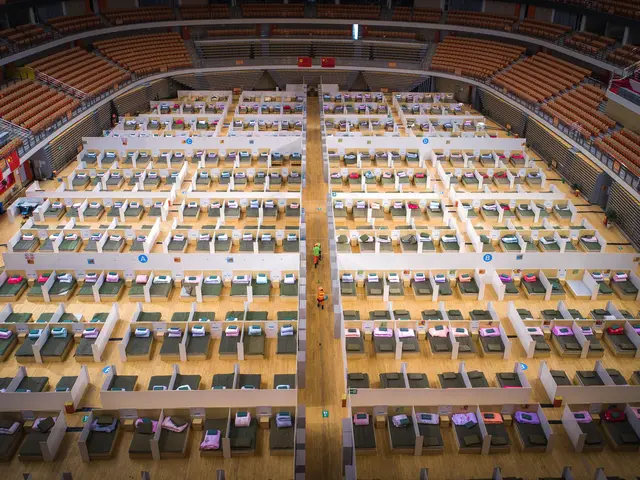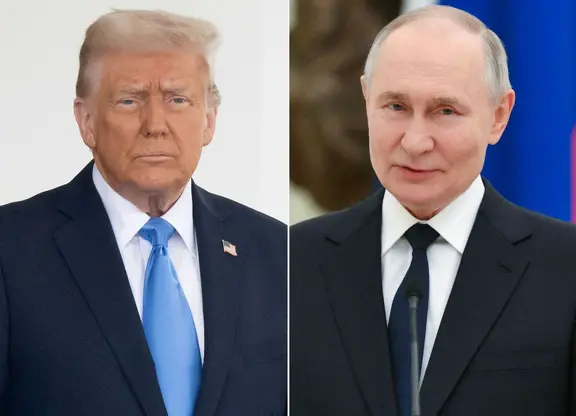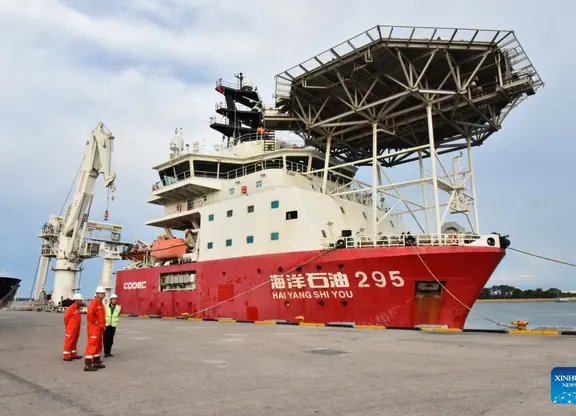The year 2020 is bound to be monumental for China as it strives to hit a historic landmark in the country's long-running story of progress. The sudden strike of the novel coronavirus epidemic only makes the endeavor more epic.
To win this two-front battle, combating the outbreak and bolstering economic and social development, is no doubt difficult, but victory is predetermined. And Chinese President Xi Jinping has made an important speech at a meeting in Beijing on Sunday to showcase China's confidence in winning.
That confidence originates from the unique strengths in China's governance system, revealed in the country's resolute response to contain the outbreak and ensure its development engine is back up and roaring.
The governance system, under the top leadership in Beijing, is able to oversee the big picture and marshal the necessary strength to achieve the country's targeted goals.
The system has demonstrated its efficiency in the country's previous battles against natural disasters like earthquakes and floods. The current battle against this deadly disease adds further proof of the system's viability.
Over the past few weeks, the entire country has been mobilized. Tens of thousands of doctors and nurses nationwide have been sent to China's Hubei province, the epicenter of the outbreak. Face masks, protective suits and other badly needed medical resources have been handed to those fighting on the frontlines. Hospitals have been built from scratch.
Clearly, these measures have proven effective. The number of newly confirmed cases in China has dropped and more patients have been cured. China's decisiveness has also provided a golden window of opportunity for countries around the world to prevent a global epidemic.
One other feature of this system is its flexibility, allowing local authorities, notably those at the grassroots, to improvise according to their different needs, thereby ensuring substantial results.
Flexibility allows local authorities across the country to take effective measures to stem the spread of the disease, keep all communities and markets sanitized, and guarantee people's safe access to fresh groceries and other daily necessities.
More importantly, China is such an expansive and diverse country that its policies need to accommodate a variety of needs. China's leaders in Beijing understand this quite well.
To ensure that China can achieve this year's economic and development goals -- elimination of extreme poverty and the completion of building of a moderately prosperous society in all respects -- Beijing has called for a return to work and resumption of industrial production and manufacturing on a situational basis.
For example, regions with relatively low epidemic risks could see the public return to work sooner rather than later; medium-risk cities and provinces could resume economic activities in an orderly manner; and high-risk areas should continue to be fully committed to epidemic prevention and control.
The central government has also swiftly rolled out a series of targeted interim policies such as cutting taxes and fees to help micro, small and medium-sized firms tide over difficulties, ensuring a stable job market, and boosting consumption.
While the outbreak has indeed exposed some weak links in the ability to deal with major public health emergencies, it has also offered the country a valuable chance to patch up them.
The good seaman is known in bad weather, a Western saying goes. The epidemic has so far shown that China's governance system remains resilient and productive enough to navigate the country through these uncharted waters.
The Chinese nation has in recent history faced down all kinds of hardships. By working more closely with the international community and continuing to nurture economic and social development, the country and its people will come out of this formidable test even stronger.
(ASIA PACIFIC DAILY)
 简体中文
简体中文






